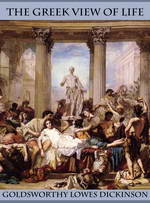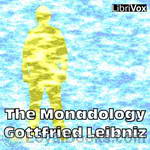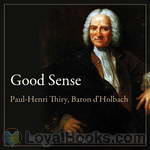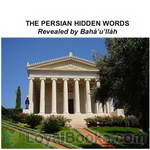|
Books Should Be Free Loyal Books Free Public Domain Audiobooks & eBook Downloads |
|
|
Books Should Be Free Loyal Books Free Public Domain Audiobooks & eBook Downloads |
|
Philosophy Books |
|---|
|
Book type:
Sort by:
View by:
|
By: William Blackstone | |
|---|---|
 Commentaries on the Laws of England (1765)
Commentaries on the Laws of England (1765)
The Commentaries on the Laws of England are an influential 18th century treatise on the common law of England by Sir William Blackstone, originally published by the Clarendon Press at Oxford, 1765-1769.The Commentaries were long regarded as the leading work on the development of English law and played a role in the development of the American legal system. They were in fact the first methodical treatise on the common law suitable for a lay readership since at least the Middle Ages. The common law of England has relied on precedent more than statute and codifications and has been far less amenable than the civil law, developed from the Roman law, to the needs of a treatise... | |
By: Voltairine de Cleyre | |
|---|---|
 Selected Essays
Selected Essays
Voltairine de Cleyre (1866–1912) was, according to Emma Goldman, “the most gifted and brilliant anarchist woman America ever produced.” Today she is not widely known as a consequence of her short life. De Cleyre was especially influenced by Thomas Paine, Mary Wollstonecraft and Clarence Darrow. After the hanging of the Haymarket protesters in 1887, she became an anarchist. “Till then I believed in the essential justice of the American law of trial by jury,” she wrote in an autobiographical essay, “After that I never could”... | |
 Selected Letters, Sketches and Stories
Selected Letters, Sketches and Stories
Voltairine de Cleyre (November 17, 1866 – June 20, 1912) was an American anarchist. She was skilled in many subjects and wrote essays, poems, letters, sketches, stories and speeches. These are her selected letters, sketches and stories. | |
By: Lao Tzu | |
|---|---|
 Laotzu's Tao and Wu Wei
Laotzu's Tao and Wu Wei
The classic of the Way and of High Virtue is the Tao Teh Ching. Its author is generally held as a contemporary of Confucius, Lao Tzu, or Laozi. The exact date of the book’s origin is disputed. The book is divided into two parts, the Upper Part and the Lower Part. The Upper Part consists of chapters 1-37, and each chapter begins with the word “Tao,” or the Way. The Lower Part consists of chapters 38-81, and each chapter begins with the words “Shang Teh,” or High Virtue. This 1919 edition names the Lower Part as the Wu Wei, or translated variously as “not doing,” “non-ado,” or “non-assertion... | |
By: Edward George Bulwer-Lytton (1803-1873) | |
|---|---|
 Zanoni
Zanoni
Zanoni, a timeless Rosicrucian brother, cannot fall in love without losing his power of immortality; but he does fall in love with Viola Pisani, a promising young opera singer from Naples, the daughter of Pisani, a misunderstood Italian violinist. An English gentleman named Glyndon loves Viola as well, but is indecisive about proposing marriage, and then renounces his love in order to pursue occult study. The story develops in the days of the French Revolution in 1789. Zanoni has lived since the Chaldean civilization... | |
By: Edmund Gosse (1849-1928) | |
|---|---|
 Three French Moralists and The Gallantry of France
Three French Moralists and The Gallantry of France
| |
By: Charles H. Spurgeon (1834-1892) | |
|---|---|
 All of Grace
All of Grace
HE WHO SPOKE and wrote this message will be greatly disappointed if it does not lead many to the Lord Jesus. It is sent forth in childlike dependence upon the power of God the Holy Ghost, to use it in the conversion of millions, if so He pleases. No doubt many poor men and women will take up this little volume, and the Lord will visit them with grace. To answer this end, the very plainest language has been chosen, and many homely expressions have been used. But if those of wealth and rank should glance at this book, the Holy Ghost can impress them also; since that which can be understood by the unlettered is none the less attractive to the instructed... | |
By: Bliss Perry (1860-1954) | |
|---|---|
 Fishing with a Worm
Fishing with a Worm
Fishing with a Worm by Bliss Perry includes the poignant and philisophical observations of a fly fisherman lured by the worm. Bliss Perry was a professor of literature at Princeton and Harvard Universities and spent time in Vermont writing and fly fishing. | |
By: Havelock Ellis (1859-1939) | |
|---|---|
 The Task of Social Hygiene
The Task of Social Hygiene
| |
By: Goldsworthy Lowes Dickinson (1862-1932) | |
|---|---|
 The Greek View of Life
The Greek View of Life
“With the Greek civilisation beauty perished from the world. Never again has it been possible for man to believe that harmony is in fact the truth of all existence.”This elegantly-written work provides a splendid introduction to the Greeks of the classic period: how they thought, wrote, and organised their lives and loves. Although it dates from the 1890s, there is very little about it that has dated. To its author’s credit, the subject of “Greek love” is dealt with in a sane and factual context - despite the judicial assassination of Oscar Wilde going on in the background... | |
By: Thomas Love Peacock (1785-1866) | |
|---|---|
 Crotchet Castle
Crotchet Castle
| |
By: Thomas R. Malthus (1766-1834) | |
|---|---|
 An Essay on the Principle of Population
An Essay on the Principle of Population
The power of population is indefinitely greater than the power in the earth to produce subsistence for man. Population, when unchecked, increases in a geometrical ratio. Subsistence increases only in an arithmetical ratio. A slight acquaintance with numbers will show the immensity of the first power in comparison with the second (Malthus). | |
By: Charles Alexander Eastman (1858-1939) | |
|---|---|
 The Soul of the Indian
The Soul of the Indian
"We also have a religion which was given to our forefathers, and has been handed down to us their children. It teaches us to be thankful, to be united, and to love one another! We never quarrel about religion." | |
By: Twentieth Century New Testament | |
|---|---|
 Twentieth Century New Testament
Twentieth Century New Testament
Published in 1904, The Twentieth Century New Testament is considered the first translation of the Bible into modern English. It was produced in Britain over a period of 15 years by approximately 20 people -- ministers, housewives, school teachers and businessmen -- who were united by their desire for a New Testament in the language of the people. They were advised by such scholars as J. Rendel Harris and Richard Weymouth so their rendering is quite accurate. In addition they made some effort at rearranging the New Testament books in the order scholars believe they were written -- Mark comes before Matthew, for instance... | |
By: Walter Pater (1839-1896) | |
|---|---|
 Marius the Epicurean
Marius the Epicurean
Marius the Epicurean is a philosophical novel written by Walter Pater, published in 1885. In it Pater displays, with fullness and elaboration, his ideal of the aesthetic life, his cult of beauty as opposed to bare asceticism, and his theory of the stimulating effect of the pursuit of beauty as an ideal of its own. The principles of what would be known as the Aesthetic movement were partly traceable to this book; and its impact was particularly felt on one of the movement’s leading proponents, Oscar Wilde, a former student of Pater at Oxford. | |
 Plato and Platonism
Plato and Platonism
| |
By: Benedict de Spinoza (1632-1677) | |
|---|---|
 The Ethics
The Ethics
The Ethics is a philosophical book written by Baruch Spinoza. It was written in Latin. Although it was published posthumously in 1677, it is his most famous work, and is considered his magnum opus.In The Ethics, Spinoza attempts to demonstrate a "fully cohesive philosophical system that strives to provide a coherent picture of reality and to comprehend the meaning of an ethical life. Following a logical step-by-step format, it defines in turn the nature of God, the mind, human bondage to the emotions, and the power of understanding -- moving from a consideration of the eternal, to speculate upon humanity's place in the natural order, freedom, and the path to attainable happiness... | |
By: William Healy, Mary Healy | |
|---|---|
 Pathological Lying, Accusation, and Swindling – A Study in Forensic Psychology
Pathological Lying, Accusation, and Swindling – A Study in Forensic Psychology
This work describes and analyzes several cases of pathological behavior. The interest comes not only from the cases themselves, but also from the of-its-time analysis which is mired in what we now know to be wrong thinking about mental illness, sexuality, gender, and race. - written by Mary Schneider | |
By: Emperor of Rome Marcus Aurelius (121-180) | |
|---|---|
 Thoughts of Marcus Aurelius
Thoughts of Marcus Aurelius
| |
By: Bahá'u'lláh | |
|---|---|
 The Arabic Hidden Words
The Arabic Hidden Words
Kalimát-i-Maknúnih or The Hidden Words is a book written in Baghdad around 1857 by Bahá'u'lláh, the founder of the Bahá'í Faith. This work is written partly in Arabic and partly in Persian. The Hidden Words is written in the form of a collection of short utterances, 71 in Arabic and 82 in Persian, in which Bahá'u'lláh claims to have taken the basic essence of certain spiritual truths and written them in brief form. Bahá'ís are advised by `Abdu'l-Bahá, the son of Bahá'u'lláh to read them every day and every night and to implement its latent wisdom into their daily lives... | |
By: Charlotte Mary Yonge (1823-1901) | |
|---|---|
 Life of John Coleridge Patteson : Missionary Bishop of the Melanesian Islands
Life of John Coleridge Patteson : Missionary Bishop of the Melanesian Islands
| |
By: John Dewey (1859-1952) | |
|---|---|
 Democracy and Education: an introduction to the philosophy of education
Democracy and Education: an introduction to the philosophy of education
| |
By: Thomas Henry Huxley (1825-1895) | |
|---|---|
 Evolution and Ethics
Evolution and Ethics
| |
 Hume (English Men of Letters Series)
Hume (English Men of Letters Series)
| |
 Lay Sermons, Addresses and Reviews
Lay Sermons, Addresses and Reviews
| |
By: Albert Schweitzer (1875-1965) | |
|---|---|
 The Quest of the Historical Jesus
The Quest of the Historical Jesus
In this book, Schweitzer traces the historical progress of 'Historical Jesus' research, from Hermann Reimarus in the mid 18th century, to William Wrede at the turn of the 20th. Schweitzer showed how Jesus' image had changed with the times and with the personal proclivities of the various authors. He concluded with his own synopsis and interpretation of what had been learned over the course of the previous century. He took the position that the life of Jesus must be interpreted in the light of Jesus' own convictions, which he characterized as those of late Jewish eschatology. (Introduction from Wikipedia, modified by JoeD) | |
By: Oliver Lodge (1851-1940) | |
|---|---|
 Life and Matter A Criticism of Professor Haeckel's 'Riddle of the Universe'
Life and Matter A Criticism of Professor Haeckel's 'Riddle of the Universe'
| |
By: Friedrich Engels (1820-1895) | |
|---|---|
 Feuerbach: The roots of the socialist philosophy
Feuerbach: The roots of the socialist philosophy
| |
By: John S. C. Abbott (1805-1877) | |
|---|---|
 The Child at Home The Principles of Filial Duty, Familiarly Illustrated
The Child at Home The Principles of Filial Duty, Familiarly Illustrated
| |
By: Gottfried Wilhelm Leibniz (1646-1716) | |
|---|---|
 The Monadology
The Monadology
The Monadology (La Monadologie, 1714) is one of Gottfried Leibniz’s best known works representing his later philosophy. It is a short text which sketches in some 90 paragraphs a metaphysics of simple substances, or monads. What he proposed can be seen as a modification of occasionalism developed by latter-day Cartesians. Leibniz surmised that there are indefinitely many substances individually ‘programmed’ to act in a predetermined way, each program being coordinated with all the others. This is the pre-established harmony which solved the mind body problem at the cost of declaring any interaction between substances a mere appearance, something which Leibniz accepted... | |
By: Elbert Hubbard (1856-1915) | |
|---|---|
 A Message to Garcia Being a Preachment
A Message to Garcia Being a Preachment
| |
By: Baron Paul Henri Thiry d'Holbach (1723-1789) | |
|---|---|
 Good Sense
Good Sense
In 1770, Baron D'Holbach published his masterpiece, "Systeme de la Nature", which for a long time passed as the posthumous work of M. de Mirabaud. That text-book of "Atheistical Philosophy" caused a great sensation, and two years later, 1772, the Baron published this excellent abridgment of it, freed from arbitrary ideas; and by its clearness of expression, facility, and precision of style, rendered it most suitable for the average student. This text is based on an undated English translation of "Le Bon Sens" published c. 1900. The name of the translator was not stated. | |
By: Gautama Buddha (563-483 BC) | |
|---|---|
 Der Wahrheitpfad (Dhammapadam)
Der Wahrheitpfad (Dhammapadam)
Das Dhammapada ist eine Anthologie von Aussprüchen des Buddha. Dabei sind die Verse so ausgewählt, dass sie den Kern der Lehre des Buddha wiedergeben. Es ist einer der bekanntesten Texte dieser Lehre und findet seine weiteste Verbreitung im südlichen Buddhismus. Dort begleitet es die Schüler des Buddha vom Anfang bis zum Ende ihres Pfades. Darüber hinaus ist es ein Meisterwerk sowohl der frühen buddhistischen Literatur als auch der indischen Tradition des Karvya (Belle Lettre). | |
By: Bahá’u'lláh | |
|---|---|
 The Persian Hidden Words
The Persian Hidden Words
Kalimát-i-Maknúnih or The Hidden Words is a book written in Baghdad around 1857 by Bahá’u'lláh, the founder of the Bahá’í Faith. This work is written partly in Arabic and partly in Persian. The Hidden Words is written in the form of a collection of short utterances, 71 in Arabic and 82 in Persian, in which Bahá’u'lláh claims to have taken the basic essence of certain spiritual truths and written them in brief form. Bahá’ís are advised by `Abdu’l-Bahá, the son of Bahá’u'lláh to read them every day and every night and to implement its latent wisdom into their daily lives... | |
By: Charles F. Dole | |
|---|---|
 The Coming People
The Coming People
Dole briefly sketches the history of life, and shows how it has a definite direction - toward the survival of the kind and gentle people. It's a challenging, and quite persuasive argument, and also a much needed one in light of the dog-eat-dog theories out there. Dole shows that in our evolving society, our traditional understanding of "survival of the fittest" needs to be updated. A book that was way ahead of its time, yet so suited to it. Some may argue that - since he was writing The Coming People before the first two world wars - that he was obviously wrong... | |
By: Edward Granville Browne | |
|---|---|
 A year amongst the Persians; impressions as to the life, character, and thought
A year amongst the Persians; impressions as to the life, character, and thought
Edward Granville Browne (1862 – 1926), born in Stouts Hill, Uley, Gloucestershire, England, was a British orientalist who published numerous articles and books of academic value, mainly in the areas of history and literature. His works are respected for their scholarship, uniqueness, and style. He published in areas which few other Western scholars had explored to any sufficient degree. He used a language and style that showed high respect for everybody, even toward those he personally did not view in positive light... | |
By: William Godwin (1756-1836) | |
|---|---|
 Thoughts on Man, His Nature, Productions and Discoveries
Thoughts on Man, His Nature, Productions and Discoveries
| |
By: George Edward Moore | |
|---|---|
 Principia Ethica
Principia Ethica
George Edward Moore, usually known as G. E. Moore, (1873 – 1958) was a distinguished and influential English philosopher. He was, with Bertrand Russell, Ludwig Wittgenstein, and (before them) Gottlob Frege, one of the founders of the analytic tradition in philosophy. Principia Ethica is one of the standard texts of modern ethics. | |
By: George Douglas Watson (1845-1924) | |
|---|---|
 Soul Food
Soul Food
A guide for Christians to walk a godly life. Covering various practical and spiritual topics. | |
By: Albertus Magnus (1193-1280) | |
|---|---|
 On Union With God
On Union With God
Surely the most deeply-rooted need of the human soul, its purest aspiration, is for the closest possible union with God. As one turns over the pages of this little work, written by Blessed Albert the Great towards the end of his life, when that great soul had ripened and matured, one feels that here indeed is the ideal of one's hopes. (From the Preface) | |
By: F. Max Müller (1823-1900) | |
|---|---|
 The Silesian Horseherd - Questions of the Hour
The Silesian Horseherd - Questions of the Hour
| |
By: Philip Stanhope, 4th Earl of Chesterfield | |
|---|---|
 Letters to His Son on the Art of Becoming a Man of the World and a Gentleman
Letters to His Son on the Art of Becoming a Man of the World and a Gentleman
Philip Stanhope, Earl of Chesterfield, was at one time Ambassador to the Hague, negotiated the second Treaty of Vienna, was a founding governor of London’s Foundling Hospital, Lord-Lieutenant of Ireland, and Secretary of State. Having no legitimate children, his heir was his third cousin (another Philip) whom he adopted. Although known as a hard, calculating man, he is most well known for his letters to his natural son (i.e., illegitimate son) (also called Philip). When Philip died in 1768, the letters are addressed to his grandchildren (Philip’s two sons, Charles, and, yes, Philip!)... | |
By: John Toland (1670-1722) | |
|---|---|
|
Pantheisticon: or, the Form Of Celebrating the Socratic-Society. Divided into Three Parts. Which Contain, I. The Morals and Axioms of the Pantheists; or the Brotherhood. II. Their Deity and Philosophy. III. Their Liberty, and a Law, neither deceiving, nor to be deceived. To which is prefix’d a Discourse upon the Antient and Modern Societies of the Learned, as also upon the Infinite and Eternal Universe. And subjoined, a short dissertation upon a Two-fold Philosophy of the Pantheists, that is to be followed; together with an Idea of the best and most accomplished Man... | |
By: Flavius Philostratus | |
|---|---|
 The Life of Apollonius of Tyana
The Life of Apollonius of Tyana
Apollonius of Tyana (ca. 40-120 AD) was a Greek Pythagorean philosopher and teacher. He hailed from the town of Tyana in the Roman province of Cappadocia in Asia Minor. His date of birth is a matter of conjecture as some say he was roughly a contemporary of Jesus.After Apollonius' death his name remained famous among philosophers and occultists. In a "novelistic invention" inserted in the Historia Augusta, Aurelian, at the siege of Tyana in 272, was said to have experienced a visionary dream in which Aurelian claimed to have seen Apollonius speak to him, beseeching him to spare the city of his birth... | |
By: Bhakti Seva | |
|---|---|
 The Hindu Book of Astrology
The Hindu Book of Astrology
Each person is born in or under one of the twelve signs of the Zodiac and is thus influenced throughout life by the planetary conditions at their time of birth. By referring to your sign, which is indicated by your date and month of birth you can determine your natural tendencies and what is best for you to attract. No matter what one of the twelve signs of the Zodiac you are born under, you can develop into a good and successful person if you will pay strict attention to the golden truths printed in this book. (Bhakti Seva) | |
By: William C. Hunter | |
|---|---|
 Pep: Poise, Efficiency, Peace
Pep: Poise, Efficiency, Peace
Colonel William Crosbie Hunter was a businessman and self-help writer who was moderately popular in the early 20th century. His books set forth his personal philosophy on health, happiness, human relations, and success in the business world. Pep, billed as "A book of how's not why's for physical and mental efficiency," was published in 1914 and went through several editions. (Introduction by Pleonic) | |
By: Daniel Garrison Brinton (1837-1899) | |
|---|---|
 The Religious Sentiment Its Source and Aim: A Contribution to the Science and Philosophy of Religion
The Religious Sentiment Its Source and Aim: A Contribution to the Science and Philosophy of Religion
| |
By: Woodrow Wilson (1856-1924) | |
|---|---|
 On Being Human
On Being Human
| |
 When a Man Comes to Himself
When a Man Comes to Himself
| |